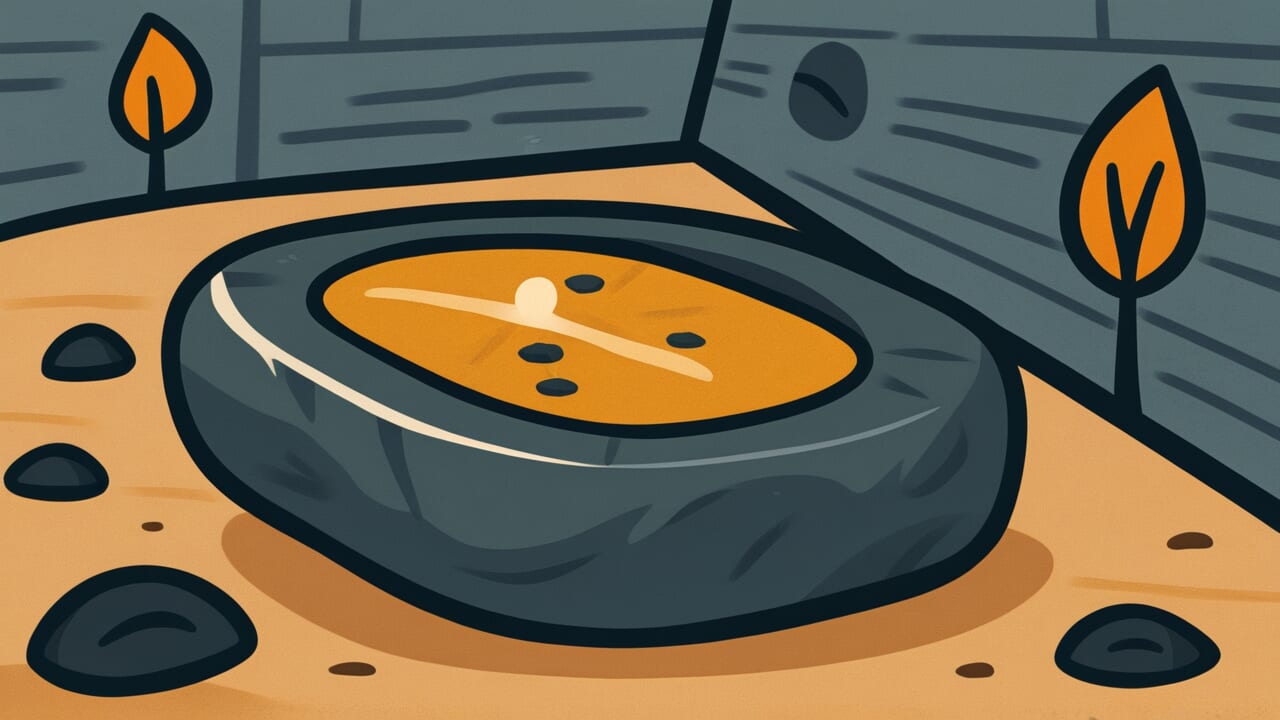How to Read “A beautiful scar is not as good as an ugly stone”
bihei wa akuseki ni shikazu
Meaning of “A beautiful scar is not as good as an ugly stone”
This proverb means that strict but honest advice is far more valuable than sweet words or indulgence that only feel good temporarily.
Harsh criticism or tough guidance may feel unpleasant in the moment. But in the long run, it has the power to guide people in the right direction and help them grow.
This proverb is especially used in education and personal development contexts. It applies when parents spoil their children instead of disciplining them when needed.
It also fits when a boss gives strict guidance because they genuinely want their subordinate to grow. Or when a friend doesn’t overlook a mistake but offers honest advice instead.
Modern society tends to emphasize “kindness.” But this proverb asks us what true kindness really means.
Is it real compassion to give someone immediate comfort? Or is true love about offering bitter truth for their future benefit? This proverb teaches us the importance of the latter.
Origin and Etymology
Clear documentary records about the origin of this proverb are limited. However, we can make interesting observations from how the words are constructed.
The character “疢” in “美疢” means illness or pain. So “美疢” creates a contradictory expression: “beautiful illness” or “pleasant pain.”
Meanwhile, “悪石” means “bad stone” or “rough stone that causes pain.”
This contrast likely reflects the influence of classical Chinese thought, particularly Confucian educational philosophy. Confucianism has a tradition of valuing strict but correct teachings over sweet words or excessive gentleness.
It shares the same philosophical background as the expression “good medicine tastes bitter.”
The term “美疢” is a clever metaphor. It compares indulgence to an illness—something that seems kind and comfortable but actually weakens people.
In contrast, “悪石” symbolizes harsh teachings. Like a stone that hurts when you touch it, these words cause pain but train people and guide them to the right path.
Metaphors using stones have often been used in Japanese education and self-cultivation. Just as a blade becomes sharp when polished with a stone, harsh words are what make people grow.
This idea is embedded in the proverb.
Usage Examples
- That teacher is strict, but as they say, a beautiful scar is not as good as an ugly stone—she must be thinking of what’s best for us
- Not scolding your child just because you love them is like a beautiful scar is not as good as an ugly stone—it actually doesn’t help them in the end
Universal Wisdom
Humans instinctively avoid pain and seek pleasure. Everyone wants to be praised and treated kindly. But this proverb has been passed down for hundreds of years because it contains a deep truth learned through human experience.
Indulgence is like a drug. It feels good in the moment, and the other person is happy. But it stops their growth and takes away their ability to face difficulties.
Harsh words, on the other hand, are hard like stone. They hurt when they hit you. But that pain is what wakes people up and makes them aware of their weaknesses and mistakes.
What’s interesting is that this proverb includes not just the perspective of the speaker, but also the receiver. When we receive harsh words, we want to resist.
But if we step back and think, we might find genuine care for us hidden in those words.
In human relationships, the truly difficult thing is balancing “strictness” and “kindness.” Our ancestors warned us not to forget the value of strictness in achieving that balance.
Why? Because if left alone, people naturally drift toward the easy path. That’s exactly why we sometimes need words of painful truth.
When AI Hears This
Praise is predictable information, so it actually contains almost zero information content. In information theory, predictable things contain no new information.
For example, the words “you’re doing great” are content you can mostly predict before hearing them. This means they have weak power to update the receiver’s understanding.
Harsh criticism, however, has large prediction error. When someone points out a flaw you didn’t notice, it gets strongly imprinted in your brain as “unexpected information.”
In information theory, the higher the surprise, the more information it contains. Rolling a 1 on a die is predictable. But discovering a loaded die always rolls 6 has great information value.
What’s more interesting is that praise has high redundancy. Expressions like “wonderful” or “well done” are generic words that work in any situation and lack specificity.
In contrast, criticism like “there’s a logical contradiction in this part” has low redundancy. It’s unique information that can’t be compressed.
From a Bayesian inference perspective, updating your cognitive model requires information that contradicts your current beliefs. Praise only reinforces existing self-perception.
But criticism forces you to revise your understanding. In terms of growth, criticism is a signal with overwhelmingly higher information density.
Lessons for Today
Modern society emphasizes “praise-based education” and “positive feedback.” But this proverb teaches us the importance of balance.
If you’re in a position to guide someone, have the courage to deliver harsh words when necessary, without fearing they’ll dislike you. You can only do this because you genuinely care about their future.
However, strictness must come paired with love. It’s only an “ugly stone” when you truly wish for the other person’s growth.
Conversely, if you’re on the receiving end of harsh words, try looking at the intention behind them. Advice that hurts to hear often strikes at truths you’ve been avoiding.
When you can see that pain as a chance to grow, you’ll move up to the next stage.
What matters is not seeking only comfortable words. Collecting “likes” on social media won’t lead to real growth.
Sometimes turn a strict eye on yourself and listen to frank opinions from others. That kind of humility is what makes you truly strong.



Comments